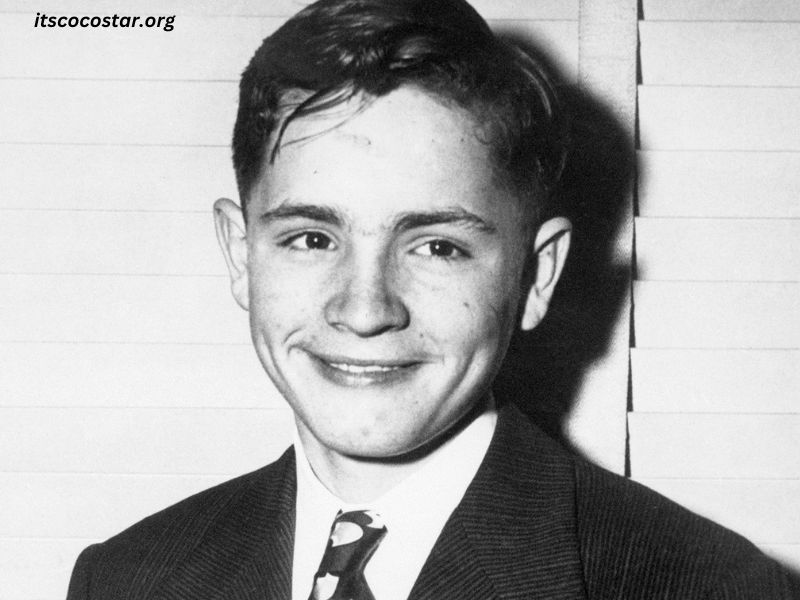Charles Manson remains one of the most infamous figures in American criminal history. Often categorized with notorious serial killers, his name is synonymous with the gruesome murders orchestrated by his cult-like “Family” in the late 1960s. However, this raises an intriguing question: Was Charles Manson one of the famous serial killers, or does his infamy lie elsewhere?
To understand this, we must delve into Manson’s life, the nature of his crimes, and how society has perceived him over the years. This comprehensive article will explore whether Charles Manson truly fits the definition of a serial killer or if his legacy is more complex.
Who Was Charles Manson?
Born on November 12, 1934, in Cincinnati, Ohio, Charles Milles Manson grew up in an unstable environment. His mother, Kathleen Maddox, struggled with alcohol and spent time in prison during Manson’s formative years. These early experiences likely influenced his later behavior, fostering feelings of abandonment and mistrust.
By the time he was a teenager, Manson had begun a life of petty crime, leading to several stints in juvenile detention centers. As an adult, he became immersed in the countercultural movement of the 1960s. In California, he developed a small but devoted following, which would later become known as the “Manson Family.”
The Manson Family: A Cult or a Criminal Enterprise?
The Manson Family was not a traditional crime syndicate. Instead, it operated as a pseudo-religious cult, with Manson at its helm. He preached a mix of apocalyptic prophecy, racial paranoia, and twisted interpretations of Beatles lyrics. His followers, many of whom were young and disillusioned, believed Manson to be a messianic figure.
Manson’s ideology, often referred to as “Helter Skelter,” revolved around his belief that an impending race war would lead to his rise as a global leader. To hasten this apocalyptic vision, he directed his followers to commit a series of brutal murders in 1969.
The Murders: What Happened in 1969?
On the nights of August 8 and 9, 1969, the Manson Family carried out a series of murders that shocked the nation. These events cemented Manson’s reputation as one of the most infamous criminals in history.
The Tate Murders
The first attack occurred at the home of actress Sharon Tate and her husband, director Roman Polanski. Although Polanski was away, Tate, who was eight months pregnant, hosted several friends at their home in Beverly Hills. That night, Manson Family members Tex Watson, Susan Atkins, Patricia Krenwinkel, and Linda Kasabian entered the property and brutally murdered five people, including Tate.
The murders were particularly gruesome. Victims were stabbed multiple times, and the word “Pig” was written on the front door in Tate’s blood, a chilling symbol of the Family’s twisted motives.
The LaBianca Murders
The following night, Manson himself accompanied his followers to the home of Leno and Rosemary LaBianca, a wealthy couple in Los Angeles. Although Manson did not directly kill anyone, he instructed his followers to murder the couple. Their bodies were also mutilated, and messages like “Death to Pigs” were scrawled in blood.
Was Charles Manson a Serial Killer?
To answer the question, Was Charles Manson one of the famous serial killers, we must first understand the definition of a serial killer. According to the FBI, a serial killer is someone who commits a series of three or more murders over a period of time, with a cooling-off period between killings. The crimes are typically driven by psychological gratification, such as lust, power, or thrill-seeking.
Manson’s role in the murders challenges this definition in several ways:
- Manson Did Not Kill Anyone Directly
Unlike most serial killers, Manson did not personally commit the murders. Instead, he manipulated and instructed his followers to carry out the killings on his behalf. While he wielded significant psychological power over the Family, he was not a hands-on murderer. - Motivation Was Ideological, Not Personal
Serial killers often act out of deeply personal psychological urges, such as a compulsion to kill or a desire to dominate their victims. Manson’s crimes, however, were rooted in his warped ideology and desire to incite a race war. This ideological motivation sets him apart from traditional serial killers like Ted Bundy or Jeffrey Dahmer. - No Cooling-Off Period
The Manson Family murders occurred on consecutive nights, which contradicts the cooling-off period characteristic of serial killers. Serial killings typically span weeks, months, or even years.
Why Is Charles Manson Associated with Serial Killers?
Despite not fitting the classic definition of a serial killer, Manson’s infamy has often placed him in the same category as other notorious killers. Several factors contribute to this association:
- The Gruesome Nature of the Crimes
The brutality of the Tate and LaBianca murders rivals that of any serial killer’s crimes. The sheer savagery of the attacks left a lasting impression on the American psyche. - Manson’s Psychological Influence
Manson’s ability to manipulate others to commit heinous acts has drawn comparisons to serial killers who exhibit high levels of cunning and control. His charisma and psychological dominance are reminiscent of traits seen in figures like Charles “The Iceman” Kuklinski. - Media Sensationalism
The media played a significant role in conflating Manson with serial killers. Headlines often referred to him as a “killer” or “madman,” perpetuating the notion that he was directly responsible for the murders. - Pop Culture and Mythology
Over time, Manson has become a cultural icon of evil. Books, films, and documentaries have cemented his legacy as one of the most infamous criminals of the 20th century, blurring the lines between fact and fiction.
Charles Manson’s Trial and Conviction
In 1971, Manson and several of his followers were convicted of murder and conspiracy to commit murder. Although he did not physically kill anyone, Manson was held accountable for orchestrating the crimes. He was sentenced to death, but his sentence was later commuted to life imprisonment when California abolished the death penalty in 1972.
Manson remained a polarizing figure until his death in 2017. His bizarre behavior during the trial, including carving an “X” into his forehead, further fueled his notoriety.
Legacy: More Than a Serial Killer
While Manson does not meet the traditional criteria of a serial killer, his crimes and the cult-like nature of the Manson Family have left an indelible mark on American history. His ability to manipulate others into committing unspeakable acts challenges our understanding of criminal behavior and complicates his legacy.
Manson’s story also serves as a cautionary tale about the dangers of unchecked charisma, cult dynamics, and societal neglect. The crimes he orchestrated underscore the devastating impact that one person’s twisted ideology can have on the lives of countless others.
Conclusion
In answering the question, Was Charles Manson one of the famous serial killers, the evidence suggests that he does not fit the conventional definition. Manson did not personally kill his victims, nor were his crimes motivated by the psychological gratification typical of serial killers.
However, Manson’s role as the mastermind behind the Tate-LaBianca murders and his enduring infamy place him in a unique category of criminal. While he may not be a serial killer in the strictest sense, his impact on popular culture and the collective consciousness rivals that of the most notorious killers.
Manson’s story continues to fascinate and horrify, serving as a reminder of humanity’s capacity for both manipulation and violence. Whether categorized as a cult leader, criminal mastermind, or pseudo-serial killer, Charles Manson remains one of history’s most infamous figures.







